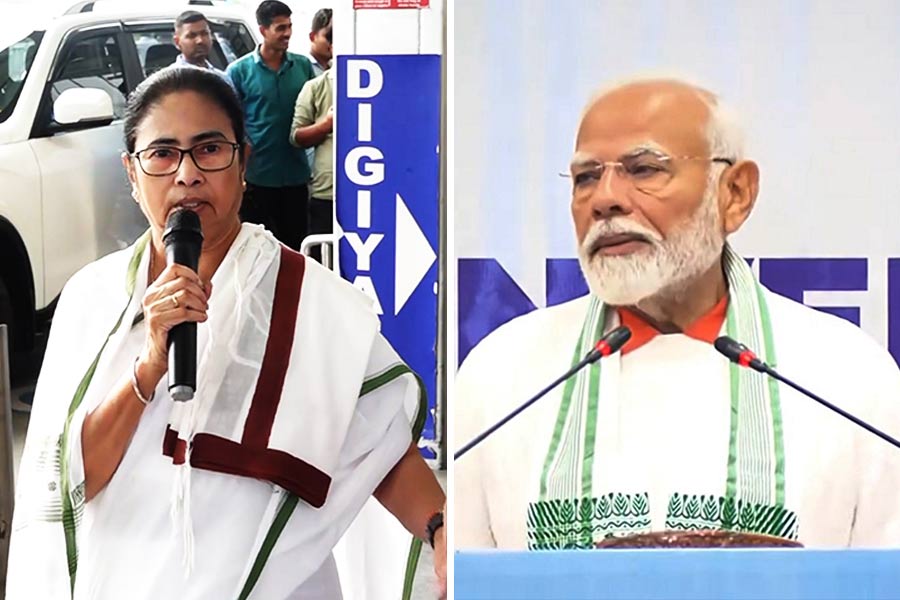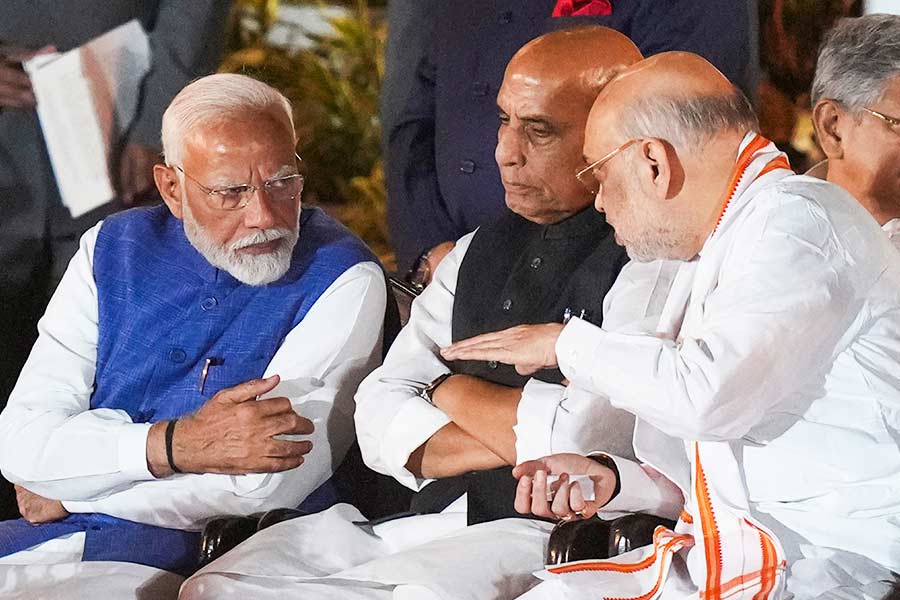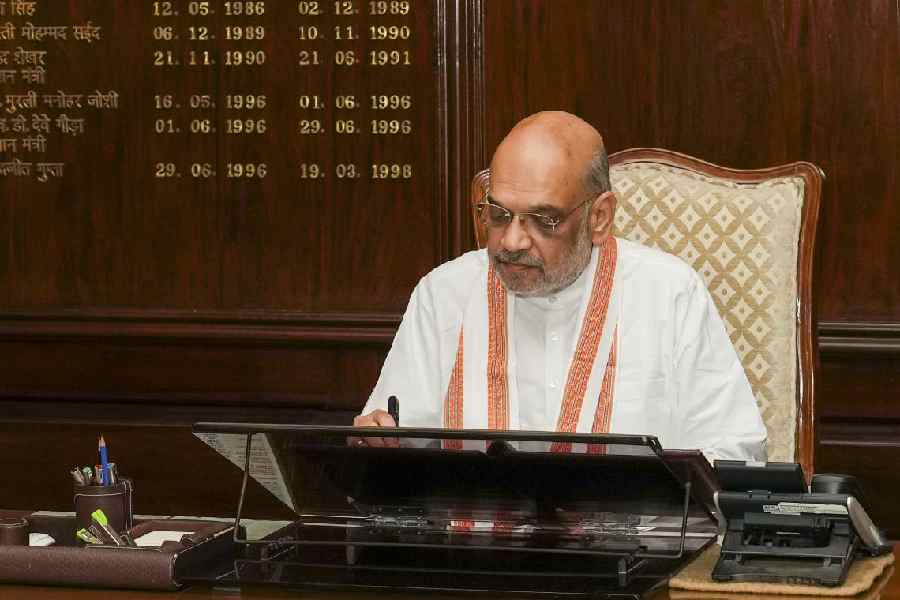Bengal chief minister Mamata Banerjee has written to Prime Minister Narendra Modi to consider at least a deferment of the implementation date of the three new criminal laws that are set to come into effect on July 1.
The Congress has also objected to the implementation of the new laws, which are set to overhaul the criminal justice system of India.
Here is the full text of the chief minister’s letter, as reported by PTI.
Respected Prime Minister,
I write to you with grave concern regarding the impending implementation of three crucial laws, namely The Bharatiya Nyaya Sanhita (BNA) 2023, The Bharatiya Sakhsya Adhiniyam' (BSA) 2023, and The Bharatiya Nagarik Suraksha Sanhita (BNSS) 2023. If you kindly recall, on the 20th of December :last year, the outgoing Government of yours had passed these three criticaBills unilaterally, and with absd16ely no debate. That day, almost one hundred members of the Lok Sabha had been suspended and a total 146 MPs of the both Houses were thrown out of the Parliament. The Bills were passed in an authoritarian manner in that dark hour of democracy. Matter deserves review now.
Indeed, I urge your esteemed office now tp, consider at least a deferment of the implementation date. Reasons are two-fold : ethical, and practical.
Ethically, I believe that it would be in the fitness of things to place these significaht legislative changes before the newly elected Parliament for fresh deliberation and scrutiny. Given the wide-ranging reservations expressed in the public domain regarding the hurriedly passed new laws, fresh Parliamentary review of these attempts would demonstrate a commitment to democratic principles and foster greater transparency and accountability in the legislative process. This approach would afford the newly elected people's representatives the opportunity to thoroughly examine the proposed reforms, address concerns raised by various stakeholders, and ensure that the laws reflect the collective will and aspirations of the citizenry. Such renewed parliamentary oversight/mandate would reinforce public confidence in the legislative process and enhance the legitimacy of the legal reforms. Earlier, we had argued ttiet these legislative attempts are retrograde, regressive and reactionary. I had written two successive letters (copies enclosed) to the Hon'ble Union Home Minister, highlighting why extreme caution and due diligence should precede any change in the existing structure of the penal-criminal jurisprudence of our country. I had argued that the outgoing Lok Sabha should not pass the new Bills with such far-reaching significance in undue hurry. I had specifically said that it would be better if the newly elected Members of the Lok Sabha deliberate upon these extremely important legislations and reach a consensus. I now reiterate that point and request you to halt and review the whole subject anew.
Secondly, practically, the request for postponement stems from a pragmatic assessment of the challenges and preparatory work required for a smooth transition, particOlarly concerning the training of law enforcement personnel and judicial officers. Any far-reaching legal, change requires meticulous groundwork beforehand to ensure effective enforcement and administration and we do not have any reason to avert such homework. Pertinently, recently, the Ministry of Law and Justice, Government of India, organized a conference in Kolkata on this subject on 16' June 2024, and the Government of India did not involve the State Government in conducting the programme. This is highly objectionable and this should have been organized by the State Government as law & order is a State subject.













